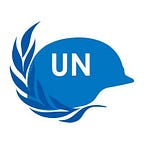Protecting peace: How UN Peacekeepers are part of the climate solution
By Jean-Pierre Lacroix, United Nations Under-Secretary-General for Peace Operations
Ahead of Monday’s Climate Action Summit opening this year’s General Assembly, UN Secretary-General António Guterres reminded the world that climate change threatens everyone and everything. As the Secretary-General said this week: “Every day we fail to act is a day that we step a little closer towards a fate that none of us wants — a fate that will resonate through generations in the damage done to humankind and life on earth”.
The link between climate change and peace & security is a reality, and UN Peacekeeping is an important part of the international community’s response to this complex security equation. Whether it is changes in water tables, desertification or movement of populations, our blue helmets are increasingly on the frontlines of these climate-related crises.
Every time I travel to one of our operations, I witness the effects of climate crisis first-hand. Security-related risks of climate change are greatest where two critical trends intersect: the monstrous impact of climate change coupled with weak governance capacity to manage the growing tensions created by these impacts. These dynamics are not hypothetical. They are the daily reality in many of the countries in which we operate, and it is everyday people who pay the highest price.
For example, diminishing usable land and unpredictable water sources have exacerbated tensions between farming and herding communities in many places, including central Mali. In the arid north of the country, the cumulative effects of more frequent droughts, increasingly unpredictable rainfall, and widespread desertification have undermined the capacity of communities to plan and to sustain their livelihoods. Climate change may not be the sole driver of conflict, but its effects contribute dramatically to widespread instability.
Our peacekeepers are committed to doing their part in the fight. To address conflict drivers related to climate change, the UN mission in Mali has taken action, including partnerships and developing space for community dialogue to mitigate violence, as well as creating a community-based land commission and the mapping of herder routes.
In the Central African Republic, the mission responded to the implications of changing livestock movements and farmland patterns, particularly with regard to risk analysis, early-warning and protection of civilians. Working with the host government and the UN Food and Agriculture Organization (FAO), our peacekeepers are elaborating plans to regulate these flows and support the establishment of local conflict management committees.
Internally, we’re also committed to leading by example. UN peace operations are actively implementing the Environment Strategy for Field Missions, which is particularly important in missions located in arid regions. For example, UNAMID established a groundwater monitoring system in Darfur that reduced water consumption by 30%, relieving pressure to a scarce natural resource that can be a driver of conflict.
But these efforts and many more will be futile if we do not win the high-stakes race against climate change. We all have a responsibility to help turn the situation around and step up efforts for the planet and its people, especially those who have already suffered the consequences of conflict and who will be the first to be affected again.
When the Secretary-General launched the Action for Peacekeeping Agenda in March 2018, he called on Member States to join him in developing a set of principles and commitments to create peacekeeping operations fit for the future. As world leaders and institutions gather in New York this week, let us make sure that we are able to win the race of our lifetime, protect peace and protect our future. As the SG put it: “Humankind has confronted and overcome immense challenges before; challenges that have required us to work together and to put aside division and difference to fight a common threat.” This is a fight we simply must win.
The author is the United Nations Under-Secretary-General for Peace Operations. Follow him on Twitter at @Lacroix_UN.
